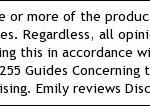This is a sponsored guest post.
As horse owners, we’re constantly seeking the best care options for our beloved equine companions, and when it comes to managing the reproductive health of mares, Regu-Mate has long been a commonly prescribed solution.
Alternative to Regu-mate for mares has been a growing interest in alternative approaches that offer effective results without the potential drawbacks of traditional hormone-based treatments. In this guide, we’ll explore some alternative options for mare care beyond Regu-Mate.
Herbal Supplements
Herbal supplements have gained popularity among horse owners seeking natural alternatives to traditional medications. Several herbs, such as chasteberry (Vitex agnus-castus) and raspberry leaf, are believed to have beneficial effects on hormonal balance and reproductive health in mares.
Chasteberry, in particular, has been used for centuries to support normal reproductive function and may help regulate estrous cycles in mares. While research on the efficacy of herbal supplements in horses is limited, many horse owners report positive results with these natural remedies.
Nutritional Support
A balanced diet plays a crucial role in maintaining overall health, including reproductive health, in mares. Providing essential nutrients such as omega-3 fatty acids, vitamin E, and selenium can support proper hormonal function and fertility.
Additionally, certain feed additives, such as magnesium and chromium, may help manage behavioral and metabolic issues commonly associated with mares in estrus. Consulting with a qualified equine nutritionist can help develop a customized diet plan tailored to your mare’s specific needs.
Acupuncture and Traditional Chinese Medicine (TCM)
Acupuncture and TCM offer holistic approaches to addressing reproductive issues in mares by restoring balance to the body’s energy pathways. Acupuncture can help regulate estrous cycles, alleviate pain associated with reproductive disorders, and reduce stress levels in mares.
TCM herbal formulations, prescribed by a qualified practitioner, may also be used to support hormonal balance and overall reproductive health. Many horse owners have found acupuncture and TCM to be effective complements to traditional veterinary care for managing mare-related issues.
Behavioral Modification Techniques
Behavioral issues, such as aggression and irritability, are common among mares experiencing hormonal fluctuations. Implementing behavior modification techniques, such as positive reinforcement training and environmental enrichment, can help manage these behavioral challenges without resorting to medication.
Providing ample turnout, social interaction with other horses, and engaging activities can help alleviate stress and promote mental well-being in mares.
Management Practices
Simple management practices can also have a significant impact on mare health and reproductive function. Maintaining a consistent routine, minimizing stressors in the environment, and ensuring proper housing and exercise are essential for supporting overall well-being.
Additionally, regular veterinary examinations, including reproductive evaluations, can help detect and address any issues early on.
Stress Reduction Techniques
Stress can negatively impact mare health and reproductive function. Implementing stress reduction techniques, such as massage therapy, aromatherapy, and relaxation exercises, can help promote a calm and balanced state of mind in mares. Gentle massage techniques can release tension in muscles and alleviate discomfort associated with hormonal fluctuations.
Aromatherapy using soothing scents like lavender and chamomile may also help reduce stress levels and promote relaxation in mares. Additionally, providing a quiet and secure environment with opportunities for rest can contribute to overall well-being and reproductive health.
Environmental Management
Environmental factors play a significant role in mare health and reproductive function. Exposure to certain substances, such as endocrine-disrupting chemicals found in plastics and pesticides, can interfere with hormonal balance and fertility in mares.
Minimizing exposure to these environmental toxins through careful management practices, such as using natural bedding materials and organic pasture management, can help support reproductive health. Additionally, ensuring access to clean water and maintaining a clean and hygienic living environment can reduce the risk of reproductive infections and complications.
While Regu-Mate remains a valuable tool in managing reproductive issues in mares, exploring alternative approaches to mare care can offer additional options for horse owners seeking natural, holistic solutions.
By incorporating herbal supplements, nutritional support, acupuncture, behavioral modification techniques, and thoughtful management practices into your mare’s care routine, you can support her reproductive health and overall well-being gently and sustainably. As always, it’s essential to consult with qualified professionals, including veterinarians and alternative therapy practitioners, to develop a comprehensive care plan tailored to your mare’s individual needs and circumstances.

Hi there! I am Emily Evert, the owner of Emily Reviews. I am 28 and live in a small town in Michigan with my boyfriend Ryan and our two pugs. I have a large family and I adore my nieces and nephews. I love reading memoirs, and learning about child development and psychology. I love watching The Game of Thrones, Teen Mom, Sister Wives and Veep. I like listening to Jason Isbell, John Prine, and other alt-country or Americana music. I created Emily Reviews as a creative outlet to share my life and the products that I love with others.
This post currently has no responses.
















Leave a Reply